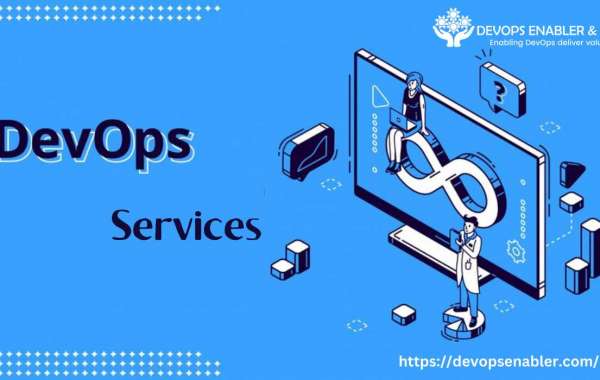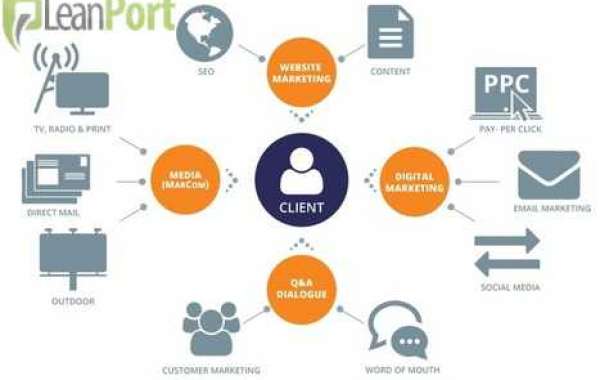Introduction:
In today's fast-paced digital age, software development has become a race against time. Businesses are continually seeking ways to accelerate their software delivery processes without compromising quality or reliability. Enter DevOps services, a comprehensive set of tools, practices, and cultural philosophies designed to address these challenges head-on. DevOps services have become the linchpin of modern software development, enabling organizations to streamline their workflows, enhance collaboration, and achieve the holy grail of continuous integration and continuous deployment (CI/CD). In this article, we delve into the world of DevOps services, their significance, and how they are reshaping software development.
Understanding DevOps Services:
DevOps, a portmanteau of "development" and "operations," represents a cultural and technical movement aimed at breaking down the silos that traditionally exist between development and operations teams. DevOps services play a pivotal role in realizing this vision by facilitating the following key objectives:
- Automation: Streamlining and automating repetitive manual tasks, reducing human errors, and speeding up the development and deployment lifecycle.
- Collaboration: Fostering a culture of collaboration and communication among cross-functional teams, including developers, IT operations, and quality assurance.
- Continuous Integration and Continuous Deployment (CI/CD): Implementing automated pipelines for building, testing, and deploying software, ensuring rapid and reliable releases.
- Infrastructure as Code (IaC): Managing and provisioning infrastructure resources through code, enabling scalability and maintaining consistency.
- Monitoring and Feedback: Leveraging robust monitoring and feedback mechanisms to detect and address issues proactively, leading to improved system performance.
Key DevOps Services:
- Version Control Systems: Tools such as Git, Mercurial, and Subversion enable version control, efficient collaboration, and tracking of changes to source code.
- Continuous Integration (CI) Tools: Jenkins, Travis CI, CircleCI, and GitLab CI/CD automate code integration and testing, fostering a culture of continuous improvement.
- Containerization and Orchestration: Docker containers and Kubernetes orchestration provide portability, scalability, and consistency for applications and infrastructure.
- Configuration Management: Ansible, Puppet, and Chef automate the configuration and provisioning of infrastructure, ensuring uniformity across environments.
- Monitoring and Logging: Tools like Prometheus, Grafana, ELK Stack (Elasticsearch, Logstash, Kibana), and New Relic offer real-time monitoring and log analysis for performance optimization.
- Collaboration and Communication Tools: Slack, Microsoft Teams, Mattermost, and others facilitate real-time communication, knowledge sharing, and cross-functional collaboration.
- Infrastructure as Code (IaC) Frameworks: Terraform, AWS CloudFormation, and Azure Resource Manager enables the definition and provisioning of infrastructure through code.
Drop Us a Note: https://devopsenabler.com/contact-us
Benefits of DevOps Services:
- Accelerated Software Delivery: DevOps services automate and optimize the software delivery pipeline, reducing lead times and enhancing agility.
- Enhanced Quality: Continuous testing, automated deployments, and infrastructure as code contribute to higher software quality and reliability.
- Cost Efficiency: Automation reduces manual effort, minimizes errors, and results in cost savings and resource optimization.
- Improved Collaboration: DevOps services break down organizational silos, fostering a culture of shared responsibility and collaboration.
- Scalability: Infrastructure as code and containerization allow organizations to scale applications and infrastructure seamlessly.
- Real-time Insights: Monitoring and feedback tools provide actionable insights into system performance, enabling proactive issue resolution.
Conclusion:
DevOps services have become indispensable in modern software development, enabling organizations to thrive in a competitive and rapidly evolving digital landscape. By embracing DevOps principles and harnessing the capabilities of these services, businesses can achieve faster software delivery, higher quality, and seamless collaboration among multifunctional teams. As technology continues to advance, the adoption of DevOps services becomes not just a strategic choice but a necessity for organizations aiming to remain innovative and responsive in the digital age. By selecting the right tools and practices, businesses can unlock the full potential of DevOps services, leading to a more efficient and effective software development and delivery process.
Contact Information:
- Phone: 080-28473200 / +91 8880 38 18 58
- Email: sales@devopsenabler.com
- Address: #100, Varanasi Main Road, Bangalore 560036.








